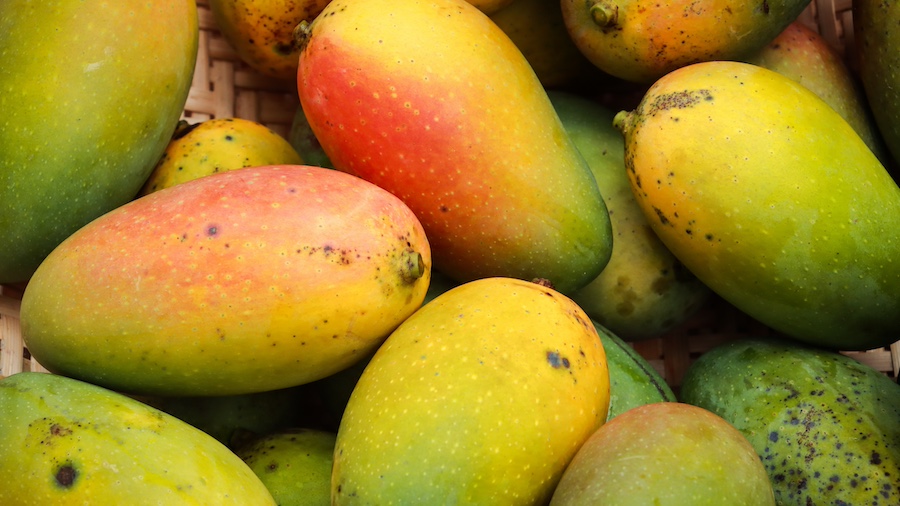In the vibrant world of cannabis, terpenes play a pivotal role in defining the aroma, flavor, and therapeutic effects of different strains.
Among these, myrcene stands out as one of the most abundant terpenes in cannabis, offering a unique blend of benefits that cater to both connoisseurs and newcomers alike.
This post explores the essence of myrcene, highlighting its benefits and guiding you through identifying strains rich in this compelling compound.

What is Myrcene?
Myrcene, with its signature earthy and musky scent complemented by a sweet, fruity undertone, serves as more than just a sensory delight. It’s a molecular artist, painting the olfactory experience of cannabis and infusing it with depth. Found not only in the cannabis plant, myrcene also weaves its aromatic magic in mangoes, where it may contribute to the fruit’s luscious and tropical notes, in lemongrass, where it adds to the citrus allure, and in hops, lending to the bouquet that characterizes many beers.
The presence of myrcene in such diverse flora points to a shared botanical chemistry, one that underlines the evolutionary patterns of plant development and the role of terpenes as adaptive elements in nature. It’s this interconnectedness that has piqued the interest of researchers and enthusiasts alike, leading to a broader investigation of myrcene’s role beyond aroma.
Emerging studies are shedding light on the possibility that myrcene could influence the permeability of cell membranes, potentially modifying the effects of cannabinoids and other terpenes. This synergy, often referred to as the entourage effect, might explain the enhanced sensation of calm and the potential analgesic effects attributed to myrcene-rich strains.
Furthermore, myrcene’s presence in herbal remedies used across different cultures suggests an ancestral understanding of its soothing qualities. As modern research ventures into realms once governed by tradition, we find ourselves revisiting these ancient practices with a scientific lens, discovering that what was once anecdote now has the potential to be substantiated by evidence.
This enriched perspective on myrcene opens up new avenues for appreciating its role in cannabis and herbal pharmacology, inviting us to explore the depths of its influence on both the human experience and the natural world.
What other terpenes are found in cannabis, and how do they contribute to its effects?
Cannabis contains a variety of terpenes that contribute to its complex effects. Some of the other notable terpenes include:
- Limonene: Known for its citrusy aroma, limonene is said to elevate mood and provide stress relief.
- Pinene: As the name suggests, pinene has a pine-like aroma. It is associated with increased alertness and may counteract some of the intoxicating effects of THC.
- Linalool: With a floral and lavender scent, linalool is believed to promote relaxation and calmness, and it might have sedative effects.
- Caryophyllene: This terpene, which has a spicy, peppery scent, is unique in that it can also act as a cannabinoid and may help reduce inflammation and pain.
- Humulene: Earthy and woody in its aroma, humulene is thought to have anti-inflammatory properties.
Each individual terpene possesses unique effects that, when combined with others in cannabis, may enhance the overall impact. This phenomenon, known as the entourage effect, suggests that the collective benefits of cannabis’s compounds surpass their individual contributions.
The Benefits of Myrcene
The therapeutic profile of myrcene is multifaceted, extending its benefits far beyond its calming nature. Renowned for its potential as a natural sedative, myrcene is a beacon of tranquility for those seeking refuge from the tumultuous waves of stress. It’s not just a matter of feeling relaxed; myrcene could enhance the quality of sleep, a crucial aspect of health and well-being. Imagine a terpene that doesn’t just lull you into a deeper sleep but might also rejuvenate your body by its anti-inflammatory and analgesic properties, suggesting relief for those who endure the discomfort of pain and inflammation.
The scientific community, while still piecing together the full scope of myrcene’s abilities, acknowledges its promise. The compound’s interaction with the body’s endocannabinoid system is of particular interest, as it may modulate physiological pathways in ways that can lead to a natural state of balance and harmony. In a world where the holistic approach to health is gaining momentum, myrcene stands out as a natural compound that aligns with this philosophy.
Moreover, myrcene’s benefits may extend to mood regulation and the mitigation of anxiety, offering a soothing presence in the mental health toolkit. By potentially engaging with neurotransmitter systems, myrcene could help in crafting a more peaceful mental state, making it a subject of interest for future psychiatric and psychological research.
As we await more comprehensive studies, the anecdotal acclaim of myrcene provides a compelling narrative for its inclusion in a wellness routine. This terpene’s symphony of potential benefits may harmonize the body’s natural rhythms, ushering in an era of plant-based adjuncts to traditional therapies.
Strains with High Myrcene Content
The allure of myrcene-rich cannabis strains is deeply rooted in their ability to provide a profound sense of relaxation and mental ease. Strains like OG Kush, with its complex aroma profile, Blue Dream, offering a sweet berry sensation, and Granddaddy Purple, known for its grape and berry aromatics, are not just popular for their flavors but also for their therapeutic potential.
These strains, among others with high myrcene content, are often sought after for their purported abilities to relax muscles, lower resistance to the psychoactive effects of THC, and contribute to the overall entourage effect that enhances the therapeutic outcomes of cannabis. Such strains are typically recommended as evening selections, perfect for those who wish to dissolve the stress of the day and enter a state of peacefulness and well-being.
How to Identify Myrcene-dominant Cannabis
When venturing to identify myrcene-dominant cannabis, one should engage in a sensory exploration. The bouquet of such strains often reveals a rich tapestry of scents; look for a robust, earthy base that is lifted by the sweet accents of ripe fruit, a hallmark of myrcene’s presence. Lab results can be incredibly revealing, offering a chemical roadmap to the terpene profiles of various strains.
At Phasal Dispensary, we pride ourselves on empowering our patrons with knowledge, guiding them through our diverse collection, and helping each individual discover the strains that resonate with their personal taste and therapeutic needs. Our staff is not just educated about our products but also about the nuances that differentiate them, ensuring a tailored, informed, and fulfilling experience for every visitor.
Conclusion
Myrcene’s allure lies not only in its aromatic profile but also in its potential to soothe, relax, and comfort. As we continue to explore the intricacies of terpenes and their impact on the cannabis experience, myrcene stands out as a fundamental element in shaping our understanding and appreciation of this versatile plant. We invite you to discover the benefits of myrcene-rich strains at Phasal Dispensary, where our commitment to quality and education ensures a rewarding exploration of cannabis’s bountiful offerings.
